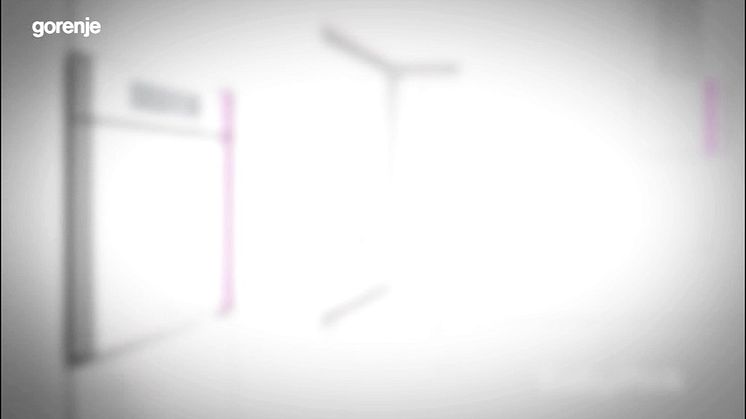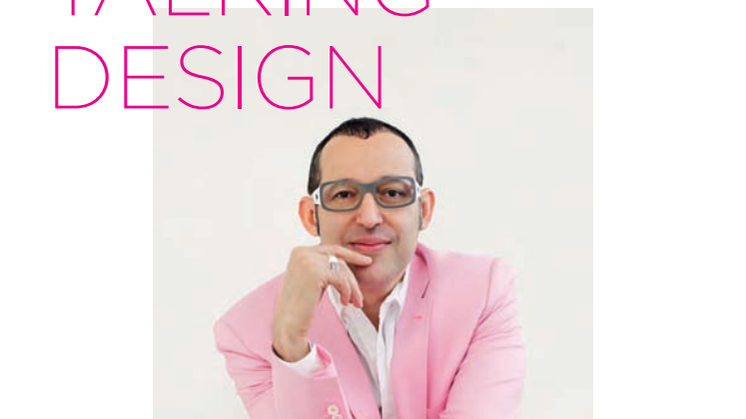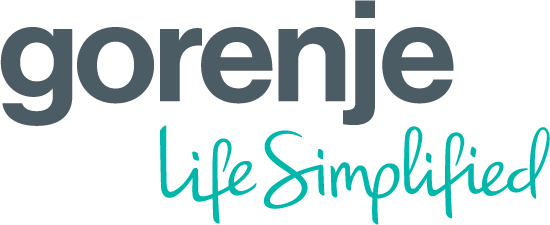Blogginlägg -
Talking Design with Karim Rashid
Karim Rashid on the Gorenje Collection, good design, sensuality and rapture of experience.
You’ve been involved in an eclectic range of design projects. What attracted you to work with Gorenje?
Gorenje is willing to create beautiful, unique products for contemporary domestic environments. As far as I am concerned Gorenje is the most progressive in this category of kitchen appliances. They are a really strong, high-quality brand, but at the same time accessible to a broad range of consumers. Kitchens are the heart of a home. Everyone gathers here for a reason and I felt the need to enhance the pleasurable, to heighten both experiences and functions.
What was your inspiration for the captivating Gorenje collection?
The spirit is simple, minimal, very intuitive, and pleasurable for a contemporary lifestyle. I decided the kitchen needs colour and mood change, so I developed the line with an LED panel so that you can light your kitchen any way you want – or keep it neutral in anodized aluminum.
Would you consider designing kitchen furniture; or more for the bathroom industry?
I’ve designed sinks, faucets, mirrors and tiles, showers and tubs, for many producers and companies. You name it, I’ve designed it for the bathroom industry. I’ve also designed entire kitchens for Scavolini and Aran in Italy. And I’m presently designing smart toilets for Is Dongseo in Korea. So absolutely, yes, more kitchens, more bathrooms.
The kitchen industry is often compared to the fashion industry because it’s become so style-driven. But how would you rate the general level of design in the kitchen industry? Is it cutting-edge enough?
I would not compare the two. Fashion is temporary, kitchens are far more permanent. The kitchen and bathroom industry was asleep for most of the 20th century but has had a new renaissance. I would say the kitchen industry is much more conservative but understandably, since it’s a large investment and a complex part of our domestic environments. But I think the technology of the home and particularly the kitchen and bath are really progressing rapidly.
What about the bathroom industry? How design-led are products in that sector?
I think the bathroom remains a very cold, hard place and technology has not done much to improve the environment. The bathroom should be a very sensual and meditative space. We’re naked in the bathroom, amongst the hardest surfaces of the home – this contradiction requires a softening, be it via the objects, storage, or actual fixtures. I think of the human body and all the objects around as an extension of us – amorphous, asymmetrical, sensual, and friendly.
What’s your view of appliance design? Do you think we’re in an interesting time or has the recession completely suppressed innovation?
When times are lean, fantasy and entertainment boom. I believe that design brings us fantasy, emotion, beauty, entertainment; therefore, design can flourish in a time when we need escape, we need to feel good about ourselves, we need to care for our home since we will go out less, and maybe entertain more. Design can be a critical proponent to our new social paradigms. Also design is the only great dierentiator for brands now. Most robotics, machinery, and technologies are ubiquitous around the world, and becoming the same in all our products. So for companies to survive, they’ll have to use design to brand them-selves even more, to dierentiate themselves, to take ownership of their vision, their philosophy, their services, their human relations, and their position in the marketplace. Companies that embrace innovation, originality, and focus, rigorously, on the human experience as the core of their agenda will prosper. In other words, design is the key to success, especially when the economy is struggling. Design is not superfluous nor extravagant; design is a necessity and an ongoing human desire. I can’t see or live in a world without design.
What is good design?
Good Design creates what I call "Rapture of Experience". Our lives are elevated when we experience beauty, comfort, luxury, performance and utility seamlessly, together. Design must evolve us – and create a beautification and betterment for society. In that respect design is needed more than ever. We should focus on how we can make our world more beautiful, more sustainable, more functional, and more fluid.
Do you believe you should be able to get good design at every budget level?
Absolutely! I created a word called "designocracy". Twenty years ago it occurred to me when I was designing products for Black and Decker, Toshiba, Brita and others in another office, that all our everyday objects should be well designed, inexpensive and accessible to the majority. That doesn’t mean we can’t have high-end objects or luxury goods, but everyday things should all be beautiful, high performing, aesthetic, ex-periential, interesting, and enjoyable. Design is about accessibility, and a progress and evolution of everyday life.
What design project are you most proud of?
There hasn’t been one favorite project but more a building journey. I can remember the satisfaction I felt from designing the Garbo and Oh Chair for Umbra back in the mid-90s. I love when my ideas are materialised in the form of products that are accessible, high design, and usable on a day-to-day basis.
As a designer do you disagree that form should follow function?
I believe that every design should be form follows human experience – Inform Form.
What trends are you seeing in kitchen and bathroom design?
Breaking out of the grid. The entire world is a matrix because we designed the world in 2D in elevation, plan and section. So the 2D process created our Cartesian 3D world. Now with 3D tools we will create the 4th dimensional world. That dimension is time, or human experience. Hence our world will finally become more fluid, more seamless, more "technorganic," more amorphous, softer, freer, and more like nature.
What innovations from the kitchen, bedroom and bathroom industries really stand out for you?
I think that all imbedded technology such as sensor and LED technology, touch sensitive controls and similar stand out. As regards form and language I think far too much is designed without regard for human use, so the style or form or material tends to outweigh the performance, function, or experience.
There has been a focus recently on sustainability and eco- friendly design. Do consumers really care; and how impor-tant is this?
I was brought up in Canada where sustainability was a given. I also was educated in a university where we studied self- sustainable housing technologies, designing full-cyclic products. When I work with any company I push the need for and agenda of sustainable design. There is no beauty without health, and the environment needs to stay healthy.
Excerpted from an interview that originally appeared in kbbreview .
Relaterade länkar
Ämnen
- Gastronomi
Kategorier
- ugn
- the touch of light
- karim rashid
- gorenje
- hushållsmaskiner
- inbyggnadsprodukten
- matlagning
- kök


